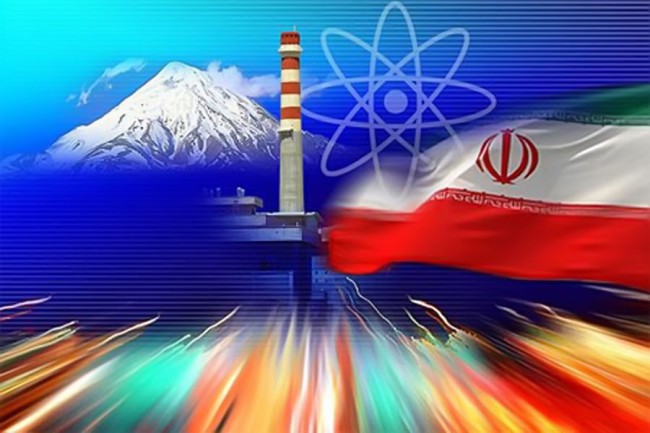
The negotiations over Iran’s supposed nuclear bomb-building abilities seem to be stuck in a rut. Yesterday they re-started once again. Given the detailed undertakings by Iran made in the agreement negotiated by the administration of President Barack Obama before President Donald Trump sabotaged it, it should have only been a hop, skip and a jump to forge a final agreement once President Joe Biden decided to resurrect it.
In reality it hasn’t been so easy. Over many years the US, with European connivance most of the time, manufactured and manipulated the whole long-time crisis, going right back to the revolution that overthrew the shah in 1979. To overcome the suspicions aroused by that, now past, tactic is not easy. That is not just my opinion after following this subject for 30 years. It is that of the former vice-chair of the US National Intelligence Council, Graham Fuller, whose highly informed writings on the subject can be easily found on Google.
In a book, “Manufactured Crisis” written by the astute investigative journalist, Gareth Porter, the lid was taken off the attempt by the US, often in collusion with Israel, to paint Iran into a corner, whilst shunning any effort by Iran to resolve the dispute.
But before we get into that I want to make one point about the Islamic sense of morality. Ayatollahs Khomeini and Khamenei, the successive top clerics and paramount leaders of the Iran, have made it clear on a number of occasions that for their country to build a nuclear bomb would go against Islamic belief and jurisprudence.
I don’t find this difficult to believe. During the bitter and savage war with Saddam Hussein’s Iraq in 1980, when Iran lost 2 million people, Iran refused to deploy chemical weapons even though Iraq did. They too were regarded as un-Islamic. Iran has been consistent in its morality. Iran’s religious practice today, while conservative, is about as far removed from the Islamic State or Afghanistan’s Taliban as it can be.
The US has not been consistent in its own Western morality, whether judged by Christian belief or current day secular Enlightenment values. It provided- as did some European states- sophisticated arms and intelligence to Saddam Hussein’s Iraq during its long war with Iran.
This is not to say that in recent years Iran has been straightforward in its nuclear dealings. It hasn’t. It has also played a hide and seek game with the US, the EU, Russia and the supervisory nuclear authority, the UN’s International Atomic Energy Agency (IAEA). In its nuclear research it has not taken the straight road to a peaceful use of nuclear energy. It has on certain key points built in a possible dual use of its nuclear infrastructure.
It has done enough of this zig zagging to allow conservative forces in the US and Israel to milk the ambiguity for all its worth. The Trump Administration and the Republican Party at large have tried to convince the world that Iran has no compunction about building a bomb and time was its main constraint. However, through various US administrations, the National Intelligence Estimates (the most authoritative written judgements on US national security issues) have never bought this interpretation.
Never has it been admitted that Iran has been playing chess in a desperate attempt to compel the West to lift the sanctions that were imposed way back in Jimmy Carter’s presidency at the time of the hostage crisis when US diplomats were detained. Studied ambiguity over its nuclear program is the only lever Iran has had to persuade the West to lift sanctions. Indeed, it is that that has brought the US and European Union along with Russia and China to the negotiating table. Enriching uranium has been nothing more than an Iranian tactic to get the sanctions removed.
In his book Porter, who wrote written during the time of the Obama administration, made some disturbing points:
• In 2004 President George W. Bush (junior) explicitly refused to countenance an agreement between Iran and the UK, Germany and France that would have committed Iran to a minimal nuclear program that would not have constituted a threat of proliferation. It was Bush who injected poison into the relationship with his goal of “regime change”. That is why he opposed the European-negotiated compromise.
• Bush ignored the findings of his own National Intelligence Estimate in 2007 which concluded Iran had stopped its nuclear weapons research in 2003.
• The well-quoted dossier of “intelligence” that was publicized by the IAEA in 2009, which “proved” that Iran was engaged in secret nuclear weapons work, was made up mainly of information supplied by Israel. The CIA never accepted it.
• It was President Bill Clinton who aligned US policy towards Iran with Israel’s. Yet Israel’s top intelligence officials did not share the public alarm mouthed by Prime Ministers Yitzhak Rabin and Benjamin Netanyahu who used any argument they could lay their hands on to denigrate Iran.
Now, under President Joe Biden, the US, with great difficulty, is attempting to fashion a revived relationship of trust with Iranian leaders. But it needs to bend towards the Iranian position much more if it is to convince them that US policy has truly changed, and they won’t be double crossed. Understandably, the Iranians are wary about the US abrogating an agreement for a second time at some future date. Who can blame them?
The former chief of the US military, General Colin Powell, commenting to Bush on his decision to invade Iraq, said, “if you break” the pot in the china shop, “you own it”. In other words, the breaker is responsible for clearing up the broken pieces and restoring trust.
In the negotiations in Vienna this week it is the US that should do the conceding. Only then will a final agreement be made, and the fear of an Iranian nuclear bomb be laid to rest.




